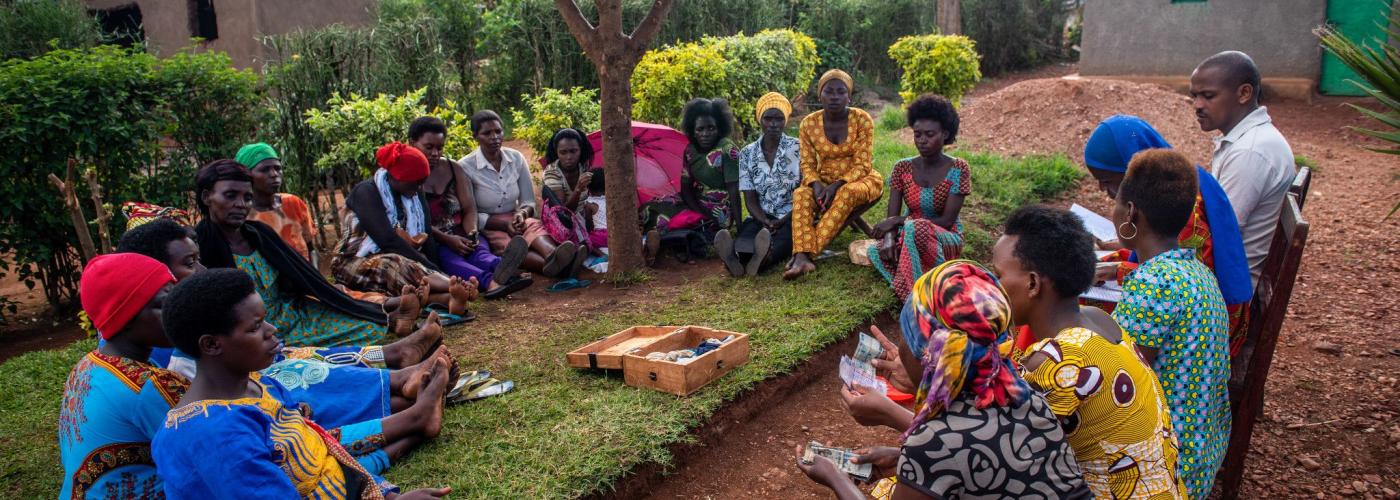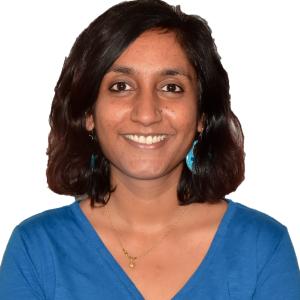Leveraging Savings Groups to Bolster Investments and Consumption of Animal Sourced Foods
Image

Community-based savings groups are impactful mechanisms to build opportunities for entrepreneurship and market development. The Feed the Future Rwanda Orora Wihaze Activity is leveraging existing Community-Based Savings Groups (CBSGs) to increase animal-source food (ASF) consumption amongst communities in the eight districts of Rwanda targeted by Orora Wihaze.
Since 2021, CBSGs participants have been engaged in a model developed by Catholic Relief Services (CRS) called village nutrition schools (VNS) that support women of reproductive age to understand the nutritional value of ASF in their daily diet and also in that of their children. Today, children under 23 months, including those with disabilities, are attending VNS sessions and are being screened regularly for malnutrition, while their parents receive critical knowledge to cook better and more nutritious meals based on what they have at home and the importance of including ASF in those meals. The VNS model includes men in its sessions, sensitizing them so that they may play more constructive and participative roles in household nutrition. A robust Social and Behavior Change Communication (SBCC) strategy around ASF consumption underpins the overall approach.
To bolster economic security through livestock, Orora Wihaze introduced the Animal Sourced Food Based Inclusive Business Model (ABIBM), to train CBSGs and cooperatives led mainly by women, youth, and people with disabilities in leadership, management, saving/lending, self-help, recordkeeping, meeting on a regular basis, and constitutions.
As of October 2022, Orora Wihaze has enrolled 104 CBSGs and 22 Cooperatives in 2021 and an additional 260 CBSGs and 40 Cooperatives in 2022. The savings groups are provided grants to promote ASF production and facilitate the offspring-sharing model among the members — a model that provides a well-prepared member with small livestock: poultry, pigs, goats, or sheep. For a CBSG to qualify for an Orora Wihaze grant, members commit their leverage contribution, which mostly includes the cost of shed construction or renovation, inputs, animal feeds, veterinary services, and logistical services.
Orora Wihaze also provides CBSGs with capacity building on animal husbandry best practices, facilitates nutrition education, and promotes gender equality and social inclusion mainstreaming to complement grants. Additionally, the project helps savings groups by providing them with resources and training sessions on management best practices.
A learning survey conducted by Orora Wihaze in March 2022 showed that the activity improved cooperative management and livestock production. Respondents reported increased social cohesion, organization, and relationship within the CBSGs and cooperatives. Some respondents even mentioned they had been able to access credit/bank loans, thanks to support from Orora Wihaze. Households also reported an increase in ASF consumption amongst CBSG members, who mentioned in the survey that they consume ASF both from their own production (mostly eggs) and from the market and other traders. The study suggested that the changes were a direct result of the training and learning sessions, including improved diet preparation and production practices, improved decision-making on eating, and shared responsibilities in the home on animal rearing, awareness of ASF nutrition, and saving some of their production for consumption purposes.
In the next phase of this ABIBM model, Orora Wihaze will facilitate market linkages between partner market actors. Up to 120 best-performing CBSGs (out of the 300 new CBSGs) will be incentivized based on their performance and integration of Orora Wihaze livestock value chains among their saving goals. Incentives will include in-kind cost shares such as day-old chicks, improved goats, pigs, and animal feeds to enable members to continue the offspring-sharing model, increasing ASF's availability, accessibility, and consumption.
Similarly, in a bid to support their nascent businesses, Orora Wihaze will select 10 to 12 of the best-performing co-ops for small grants ranging between $3,000 and $5,000, depending on the number of members, sales and turnover, identified business gaps, the viability of co-ops businesses, and innovations implemented after training. It is worth noting that after the project builds the capacities of youth with viable livestock businesses and ASF-based projects, five finalists will be selected to receive grants. These grants will be used exclusively to ensure the market extension, scalability, and sustainability.
Orora Wihaze will leverage CRS’ existing Private Service Providers (PSP) to ensure durable support to CBSGs using a fee-for-service model. It will facilitate linkages between CBSGs and PSPs and incentivize them in terms of transport and communication as they provide technical support through coaching, mentorship, monitoring, and reporting tailored to each CBSGs/cooperative’s activity and needs. The PSPs’ technical support will mainly focus on savings and loans, channeling ASF messaging through VNS and Early Childhood Development (ECD) parenting sessions. Beyond Orora Wihaze, PSPs will continue to provide affordable technical support to CBSGs and Coops to ensure the scalability and sustainability of their activities.
This combination of multisectoral interventions (nutrition sensitization, livestock extension, SBCC, and business and financial literacy) provided through CBSGs/cooperatives as an entry point is therefore leading to results — not only in improved nutritional outcomes but also in income-generating activities and enhanced private sector linkages in the livestock sector.



